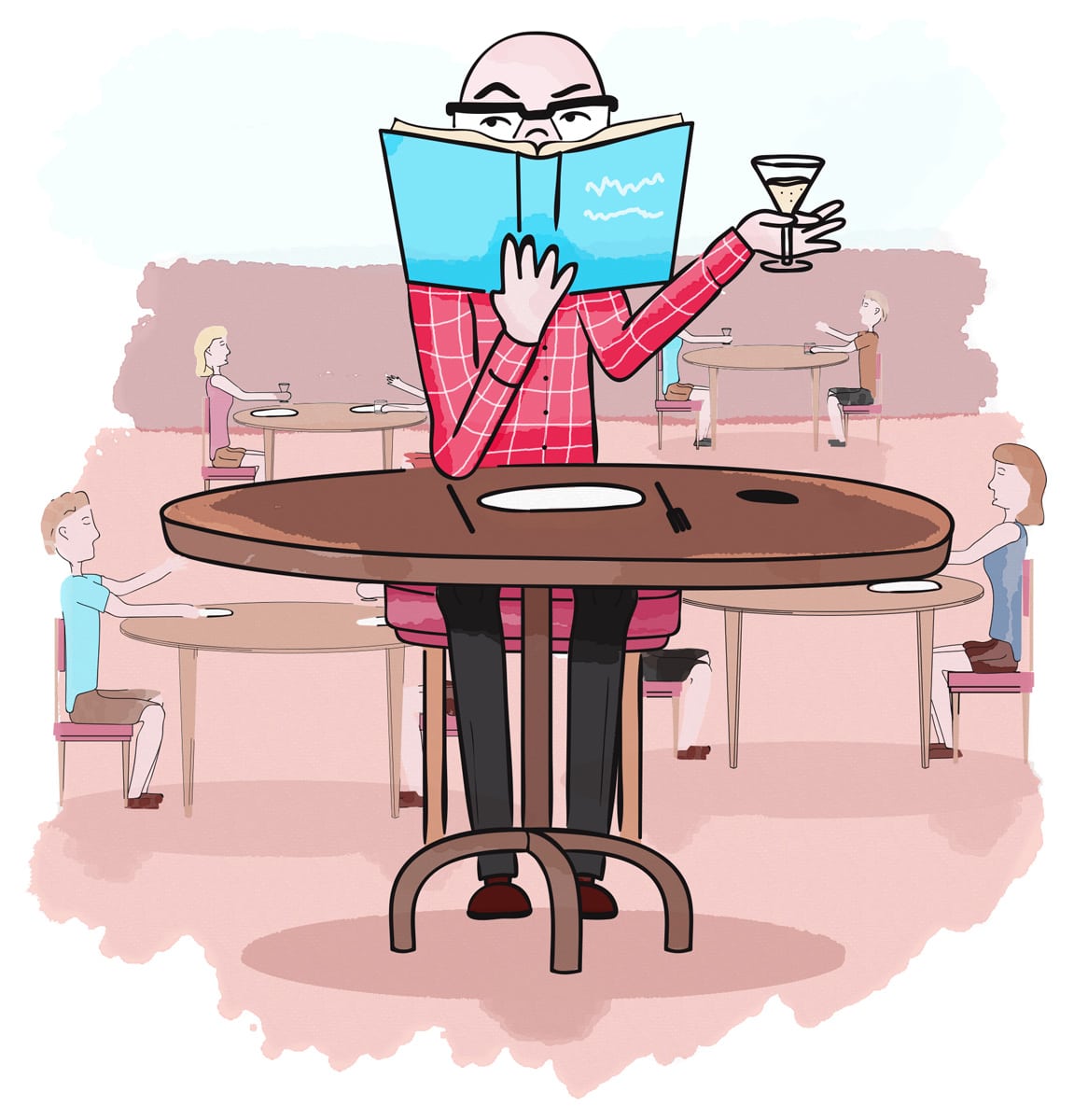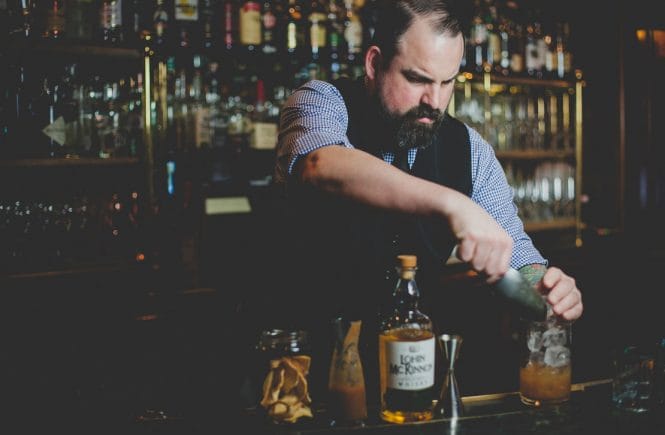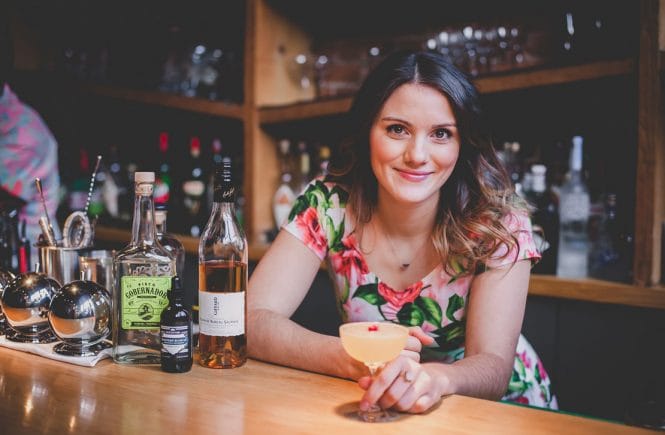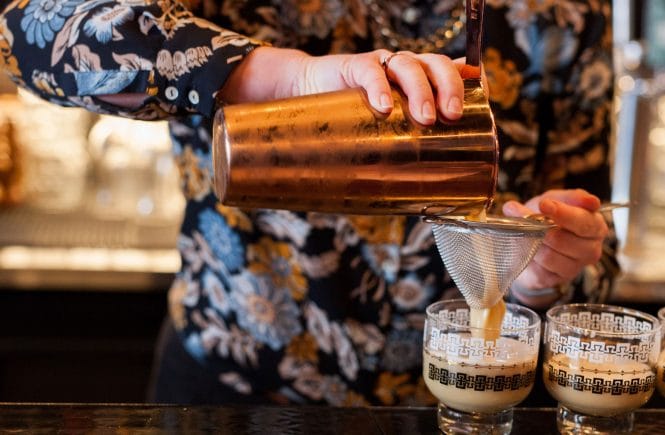Our man-about-town discovers that taking a seat at the bar is a social act, even for the solo sipper

Earlier this year, for no apparent reason, multiple stories were published about the stigma of eating in a restaurant alone, each of them offering counsel as to why no one should feel self-conscious for doing so. I appreciate these pieces having been written, but I don’t understand why they need to exist.
I’ve never felt self-conscious about dining solo. I’d argue, in fact, that it’s often a superior experience to dining as part of a couple or a group. Without the pressures or distraction of conversation, one can fully appreciate a meal, consume it at a preferred pace, and get lost in a book or people-watching or whatever private reveries help the mind relax and the heart sing.
The most prominent of the above-mentioned articles, at the website Eater, suggests it might actually work to your advantage in a major way: Ryan McCaskey, chef at Chicago’s two-Michelin-starred Acadia, says a table for one might be assumed a critic or an inspector, and staff therefore fall over themselves to provide red-carpet treatment.
But what of going to a bar—a well-regarded cocktail bar, not some scruffy beer-and-wings tavern—alone? A casual survey of self-identified lone wolves revealed that, to many of them, this is a declaration of independence too far. Too uncomfortable, too exposing, too potentially depressing, to contemplate. (Curiously, they say this wouldn’t be their feeling if they were a visitor in some faraway city, where solitude is beyond their control. None of their servers or fellow patrons would know this, of course, but they would.)
We seem to have fallen a long way from the Mad Men era, when an adult apparently thought nothing of warming a barstool unaccompanied, holding a Martini aloft in one hand while using the other to scribble ideas onto the back of a napkin. What, exactly, do we now fear? Appearing friendless? Troubled? Lecherous?
(Please note: Another casual survey revealed that people, including servers, overwhelmingly could not care less about your public lack of companionship.)
One can fully appreciate a meal, consume it at a preferred pace, and get lost in a book or people-watching or whatever private reveries help the mind relax and the heart sing.
Bar manager Luke McInnes has seen everything from his post behind the wood at Blue Water Cafe. The Yaletown seafood temple is rarely anything less than bustling with a wide assortment of neighbourhood drop-ins, itinerant foodies, busy executives and concierge-directed tourists. Blue Water’s long, elegant, impeccably stocked bar is something of a different world to the dining room, despite there being no barrier between them. McInnes says solitary customers reveal a great deal about themselves simply by virtue of which of these two worlds they choose to live in during a visit. “A table in the dining room is like an island,” he explains. “Some people want to be on an island. But others prefer to be on land—at the bar—where they might have some company.”
McInnes considers it part of his job to quickly assess a customer’s personality, thus knowing whether to be purely transactional or to provide the attentive, sympathetic ear for which the bartender is renowned. His takeaway: Whether a person comes to a bar alone to be left alone or to try to lose their loneliness, the very act of pulling up a stool and taking receipt of a delicious cocktail is a therapeutic ritual that should be embraced and celebrated.
“The busier people are, the more inclined they are not to have anyone else around them, which isn’t good for anyone,” he says. “That’s where the therapy comes in: We need to be around people.”
—by Michael White




